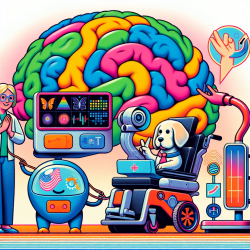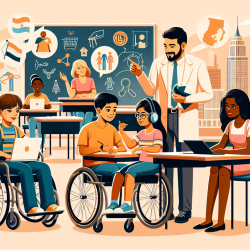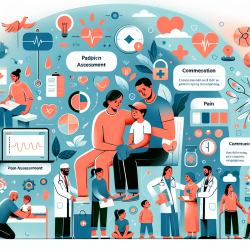Introduction
As a speech-language pathologist dedicated to creating optimal outcomes for children, it is imperative to base our practices on robust data and research. The recent study titled IBD Barriers Across the Continents: A Continent-Specific Analysis: Latin America provides valuable insights into healthcare barriers that can be translated into actionable strategies for improving online therapy services, such as those offered by TinyEYE.
Understanding Healthcare Barriers in Latin America
The study highlights the diverse healthcare landscapes across Latin America, noting significant disparities in access to quality care. These disparities are influenced by various factors, including socioeconomic status, geographic location, and the availability of healthcare resources. Such barriers are not unique to IBD but are prevalent across various health conditions, including those affecting communication and language development in children.
Applying Research Insights to Online Therapy
For practitioners providing online therapy, understanding these barriers is crucial. Here are several ways to leverage these insights:
- Customized Therapy Plans: Recognize the unique challenges faced by children in different regions. Tailor therapy plans to address specific needs, considering cultural and linguistic differences.
- Enhanced Access: Utilize technology to bridge the gap in access to therapy services. Online platforms can reach children in remote or underserved areas, providing them with the support they need.
- Collaboration with Local Entities: Partner with local healthcare providers and educational institutions to ensure comprehensive care and support for children. This collaboration can help overcome systemic barriers and improve outcomes.
Encouraging Further Research
The study also underscores the need for more extensive research into healthcare barriers and their impact on therapy outcomes. Practitioners are encouraged to engage in or support research initiatives that explore these issues further. By contributing to the body of knowledge, we can develop more effective strategies for overcoming barriers and enhancing therapy services.
Conclusion
By understanding and addressing the barriers highlighted in the research, practitioners can improve the effectiveness of online therapy services for children. This approach not only enhances individual outcomes but also contributes to the broader goal of equitable healthcare access. To delve deeper into the research findings, read the original research paper.










